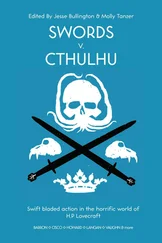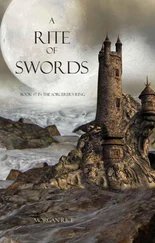Christopher Buckner - Swords of Rome
Здесь есть возможность читать онлайн «Christopher Buckner - Swords of Rome» весь текст электронной книги совершенно бесплатно (целиком полную версию без сокращений). В некоторых случаях можно слушать аудио, скачать через торрент в формате fb2 и присутствует краткое содержание. Жанр: Исторические приключения, на английском языке. Описание произведения, (предисловие) а так же отзывы посетителей доступны на портале библиотеки ЛибКат.
- Название:Swords of Rome
- Автор:
- Жанр:
- Год:неизвестен
- ISBN:нет данных
- Рейтинг книги:3 / 5. Голосов: 1
-
Избранное:Добавить в избранное
- Отзывы:
-
Ваша оценка:
- 60
- 1
- 2
- 3
- 4
- 5
Swords of Rome: краткое содержание, описание и аннотация
Предлагаем к чтению аннотацию, описание, краткое содержание или предисловие (зависит от того, что написал сам автор книги «Swords of Rome»). Если вы не нашли необходимую информацию о книге — напишите в комментариях, мы постараемся отыскать её.
Swords of Rome — читать онлайн бесплатно полную книгу (весь текст) целиком
Ниже представлен текст книги, разбитый по страницам. Система сохранения места последней прочитанной страницы, позволяет с удобством читать онлайн бесплатно книгу «Swords of Rome», без необходимости каждый раз заново искать на чём Вы остановились. Поставьте закладку, и сможете в любой момент перейти на страницу, на которой закончили чтение.
Интервал:
Закладка:
Most of the men, far too sad and miserable to look at, seemed to be living ghosts, their faces were pale and hair matted. All of them looked older than their true age would have testified to.
Their wary eyes stared up at Gaius as he was forced to walk passed them in order to reach the Senate doors. A few of the beggars raised their hands out towards him, asking without words for a few coins. Gaius, feeling sick from their smell, ignored them as he held his breath and continued up the steps.
As he reached the Senate doors, he let out a gasp and breathed in fresh air. Even now, he was still able to smell their filth. It made him want to throw up. He was ashamed that a man could let their lives fall to such ruin that he wished they would just go away, swept down the gutters like the trash, carried off by the rain water.
Gaius was about to speak to Valerius, who he assumed was still with him; no doubt having to also hold his breath and hurriedly climb the Senate steps to avoid the beggars. However, when he looked back Valerius was nowhere to be seen.
And then Gaius saw him, strangely standing at the base of the steps talking to several of the beggars, seemly asking a pair of men questions.
Gaius couldn’t hear what was being said, not over the rain and the chorus of voices that carried over the forum. A moment later he watched as Valerius reached to his belt, removing a small leather bag that was attached to his waist, before tossing it, along with its contents of silver to the three men.
Gaius was dumbfounded as he watched the beggars rise to their feet, shake Valerius’ hand before they ran off, pushing through the bodies of citizens before disappearing from view.
“Who were those men? Did you know them?” Gaius asked as Valerius climbed the steps and joined him.
“I do not know. Just soldiers, like you and I.”
“Are you serious?” Gaius asked, the shock on his face evident as he looked back down at the beggars, studying them with careful attention. A number of them were indeed wearing the red tunics, although now badly faded and stained, of the legion.
“It is a disgrace that they have allowed themselves to fall so far.” Gaius spat as his eyes drifted away from the former legionnaires and back towards Valerius.
“Do not fault them, Gaius. Not every man was made to serve the legions, or has the body and mind to come home, after living through and seeing what most men will never experience.”
“Regardless, what makes you think they won’t spend the money you gave them on drink and women?” Gaius asked.
“I don’t know, and I do not care. It is no longer my money,” Valerius replied plainly.
“A waste of coin if you ask me,” Gaius commented rudely.
“Then it is a good thing I did not ask for your permission.” Valerius’ tone was controlled, not holding Gaius’ empty words to heart, but he was firm, nonetheless.
“Come; stop straining yourself on matters your young mind can’t possibly understand right now. You’ve yet to see a senatorial session. Wait until it has concluded, then your outlook on Roman life will be even more distorted than it is now.”
Gaius did not reply as he stared at Valerius with a questionable expression before the legate of the Sixth escorted him inside.
Inside three hundred senators sat tightly, shoulder-to-shoulder on two sets of elevated stone benches. Their combined voices echoed over the marble and limestone chamber as they debated without pause about Rome’s most pressing issues, which were numerous, beyond that of the approaching army, led by Hannibal.
Two seats sat in the center of the chamber. There, the two co-consuls would have sat, but on this day only Consul Gaius Flaminius was present as his counterpart was out of the city.
The chamber was well lit; the sweat smell of the oil that burned filled the room as Gaius and Valerius walked unobtrusively, making sure not to interrupt the proceedings. Several other officers also stood near the back, where they listened with restraint.
As Gaius spend the next couple hours' listening, the day’s proceedings were filled with debates on taxes, shipping and trade issues with several Greek states, piracy, plague, grain shortages in distant territories, and of course, finally, Hannibal and his alliance of barbarian northerners making their way down across the Alps.
Speaking now was an older senator who looked to be in his late sixties. He held the folds of his toga in one hand, while the other he brandished violently in the air as he spoke, dramatically.
“The destruction of Saguntum by the Carthaginian, Hannibal ten years ago was a clear sign that his government, which has already refused our demands for justice, has always been seeking war with the Republic,” the senator named Quintus spoke loud enough for all to hear him. Numerous senators added their angry voices to his claims as he continued once the roars lessened.
“Now, reports tell us that Hannibal has amassed an army of fifty thousand, many of whom are Gallic barbarians that have sworn their service to him, as long as he promises them Rome. Hannibal’s intentions are very clear: with his army, he will threaten the whole of Italy once he has completed his journey across the Alps, and yet this Senate will do nothing in response to this act of aggression!”
“We sent an envoy to Carthage, numerous times since Saguntum’s fall,” one senator spoke up, trying to defend the actions of those that did not support the call for war.
“And they continually refused our demands for peace, have they not?” Quintus asked, which was followed by an uproar of anger.
“We offered them peace, and they refused it,” another man proclaimed.
“We must still try to continue with peace talks. The actions of Hannibal are not the desires of Carthage. Even they have acknowledged this much to us.”
“Yet, they support him!” a voice called out.
“We cannot hold a whole country accountable for the actions of one man. If this Senate declares war on Carthage, a war we are in no position to fight right now, then our enemies, those nearer to us, will act. It is the continuing conflicts in Greece and Macedonia that we need to focus our attention on, not some renegade general and his band of barbarian followers,” Liberius announced, but quickly his cautious words were drowned out by the supporters for war.
“You only care about your grain shipments, and not the honor of your country, Liberius!” Senator Appius yelled as he challenged his colleague’s loyalty to Rome; his words caused another outburst between the two factions.
“We cannot ignore the threats from Greece, nor can we deny that the Carthaginians have brought war to our lands once again,” a new voice stood as he tried to be the voice of reason.
“Agreed!” Yelled both factions, as each believed the words were in support of their point of view.
Consul Flaminius raised his hands, begging for his fellow representatives to be silent as he rose to his feet.
“Fellow senators, I do not wish war with Carthage. The last conflict our two nations shared was bloody, and cost the lives of many of our finest men. It is true that the protection of our grain shipments from Greece and the East take priority over the threat that Hannibal poses.”
Numerous hecklers erupted as those that support the cause for war responded to what the consul was saying.
Flaminius again raised his hands and asked for silence.
“However, this act of aggression by a single man cannot go unpunished.”
Cheers replaced the negative jeers as the volume in the chambers rose higher.
“If our enemies see that Rome takes no action to defend our allies, and punish those responsible for defying the Republic’s laws, then we as a nation would have proven that we are not up to the task of crushing even the tiniest insect, or protecting our friends. For this, Hannibal and his barbarian horde must be crushed, and Carthage, taught a lesson it shall never forget!”
Читать дальшеИнтервал:
Закладка:
Похожие книги на «Swords of Rome»
Представляем Вашему вниманию похожие книги на «Swords of Rome» списком для выбора. Мы отобрали схожую по названию и смыслу литературу в надежде предоставить читателям больше вариантов отыскать новые, интересные, ещё непрочитанные произведения.
Обсуждение, отзывы о книге «Swords of Rome» и просто собственные мнения читателей. Оставьте ваши комментарии, напишите, что Вы думаете о произведении, его смысле или главных героях. Укажите что конкретно понравилось, а что нет, и почему Вы так считаете.












